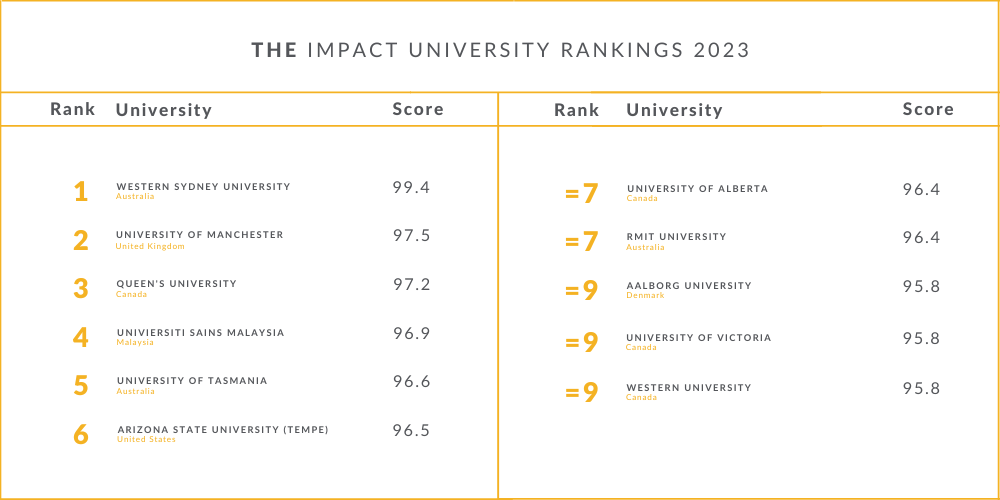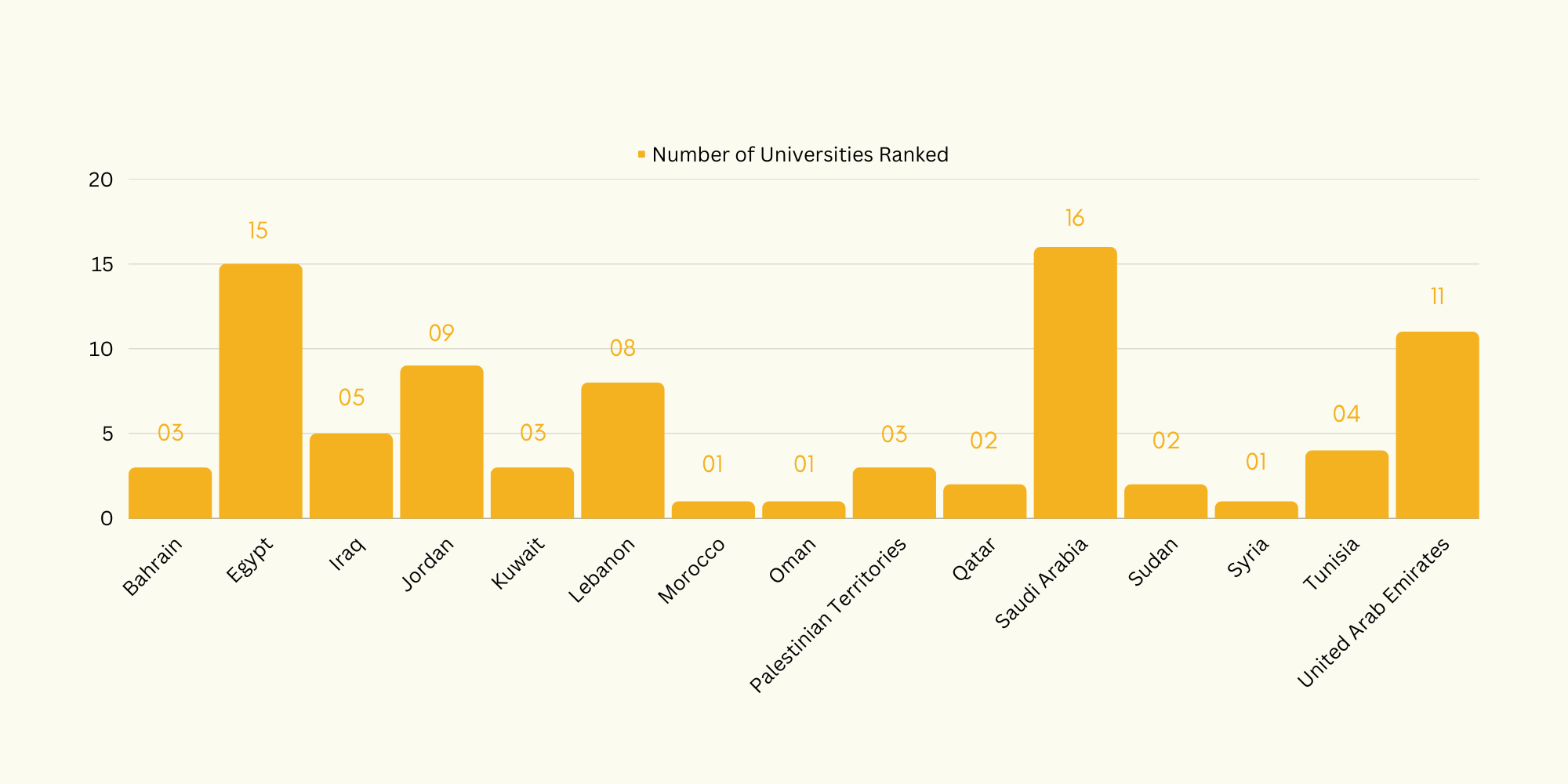
Times Higher Education (THE) has been keen on giving credit to the institutions that are making progress towards the United Nations’ Sustainable Development Goals (SDGs). By publishing its Impact Rankings yearly, THE has given well-deserved visibility to those institutions. Unsurprisingly, THE Impact Rankings is featuring a rapidly growing number of institutions year after year. This year, the fifth edition of the ranking includes 1,591 universities from 112 countries – that’s 185 more universities and six more countries than last year’s edition of this ranking.
Methodology
Eligibility criteria for this ranking requires each university to submit data related to at least three focus SDGs in addition to data related to SDG 17. If an institution submits data on more than three SDGs, the SDGs with the highest scores are used. Moreover, the overall yearly score is the average of the scores from the last two years.
While THE looks at research (in relevant topics), stewardship, outright (with local, regional, national, and international communities), and teaching, it further categorizes its metrics for this ranking into three groups: research metrics, which are derived from data supplied by Elsevier; continuous metrics, such as the number of graduates in a relevant field, policies, initiatives; and finally, time frame, which is specified for each metric.
To read the full methodology for this ranking, please visit THE’s website here.
Methodology

Australian and Canadian universities dominated the top 10 charts this year. For the second consecutive year, Western Sydney University is occupying first place, with an increased score of 99.4 compared to 99.1 last year. University of Manchester from the United Kingdom ranked second this year, up from ninth spot last year. In third place, Queens University Canada scored 97.2, up from seventh place last year. In fourth place, Universiti Sains Malaysia maintained its rank on the top 10 chart from last year.
University of Tasmania improved its score significantly, rising from 25th to fifth place on this year’s chart compared to the previous ranking. Arizona State University occupies sixth place this year, down from second last year. Meanwhile, University of Alberta and RMIT University share seventh place, both scoring 96.4. Last but not least, three universities—Aalborg University, Denmark; University of Victoria, Canada; and Western University, Australia—all share the ninth place, each scoring a total score of 95.8.

Well-Represented Countries
Within the Impact Rankings top 10, there is no doubt that Australia and Canada are the most represented nations. The rest of the chart, however, presents a slightly different picture, showcasing the increasing involvement of middle-income countries in working towards the SDGs. While many institutions from these countries have made it into the top 200, the significant number of institutions actively committed to the SDGs and submitting their data reflects these nations’ recognition of their role in addressing the global challenges posed by the SDGs.
The countries whose universities have ranked among the top 100 in high concentrations were:
– New Zealand – 88 per cent of universities ranked were made the top 100
– Australia – 63 per cent of universities ranked were made the top 100
– Canada – 62 per cent of universities ranked were made the top 100
– United Kingdom – 46 per cent of universities ranked were made the top 100
THE Impact Rankings 2023: Top Three by SDG
Within the Impact Rankings top 10, there is no doubt that Australia and Canada are the most represented nations. The rest of the chart, however, presents a slightly different picture, showcasing the increasing involvement of middle-income countries in working towards the SDGs. While many institutions from these countries have made it into the top 200, the significant number of institutions actively committed to the SDGs and submitting their data reflects these nations’ recognition of their role in addressing the global challenges posed by the SDGs.
The countries whose universities have ranked among the top 100 in high concentrations were:
– New Zealand – 88 per cent of universities ranked were made the top 100
– Australia – 63 per cent of universities ranked were made the top 100
– Canada – 62 per cent of universities ranked were made the top 100
– United Kingdom – 46 per cent of universities ranked were made the top 100

















Institutions from the Arab World

This year’s THE Impact Rankings included 196 universities and institutions from the Arab world, compared to only 164 last year. Though more universities were ranked this year from the region, only seven universities from five countries made it to the top 200. From Saudi Arabia, King Abdullah University of Science and Technology, King Faisal University, and Prince Mohammad Bin Fahd University all ranked within the top 200. Also landing in the top 200 were Ahlia University from Egypt, Aswan University from Egypt, Al Ahliyya Amman University from Jordan, and Al Ain University from the United Arab Emirates.
While most Arab countries have experienced a growing number of universities included in the 2023 Impact Ranking, no Arab university secured a top-three ranking for each SDG this year. However, the rise in the number of ranked universities is a clear indication that institutions in the region are actively aligning their initiatives, programmes, and activities with the United Nations’ Sustainable Development Goals. This progress highlights their dedication and commitment towards addressing global challenges and fostering sustainable development.
Forge world-class universities
Assess, develop, and implement strategies to improve your institution’s leadership excellence and aid global reputation ambitions with our training and consulting programmes. Click below for more information.


